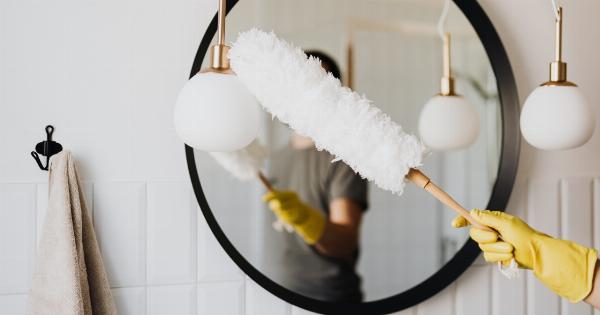Allergens are tiny particles that can trigger allergic reactions in some people. They can come from various sources such as dust mites, pet dander, pollen, and mold.
If you or someone in your family is allergic, it is essential to reduce the amount of allergens in your home to avoid triggering allergic reactions. Here are ten tips to help you reduce allergens in your home:.
1. Keep Your Home Clean
Regular cleaning is the first step to reducing allergens in your home. Dust and vacuum your floors, rugs, and upholstered furniture at least once or twice a week.
Use a vacuum cleaner with a HEPA filter to trap small allergen particles that regular vacuum cleaners cannot capture. Wipe surfaces with a damp cloth to avoid stirring up dust. Use a dehumidifier to keep the air in your home dry and prevent the growth of mold and bacteria.
2. Change Your Air Filters Regularly
Heating and cooling systems can also be a source of allergens. Replace your air filters every three months or as recommended by the manufacturer.
This will ensure that your heating and cooling systems circulate clean air and prevent allergens from accumulating. HEPA filters are also available for heating and cooling systems and can trap even smaller allergen particles.
3. Control Humidity in Your Home
Humid environments can support the growth of mold and dust mites. Keep the humidity level in your home between 30% and 50%. Use a dehumidifier to reduce humidity in damp areas such as basements and bathrooms.
Fix any leaky pipes or faucets to prevent moisture buildup. You can also use exhaust fans or open windows when showering or cooking to reduce humidity levels.
4. Remove Clutter
Cluttered surfaces can trap dust and provide hiding places for allergens such as pet dander. Keep your home clutter-free by regularly decluttering and organizing your belongings. Store unused items in bins or boxes to reduce dust accumulation.
Avoid using carpeted flooring and opt for hardwood, tile, or linoleum flooring where possible as this will reduce the amount of dust accumulation.
5. Wash Bedding Regularly
Bedding can harbor allergens such as dust mites, pet dander, and pollen. Wash your bedding, including sheets, blankets, and pillowcases, at least once a week in hot water.
Use allergen-proof covers for your pillows and mattresses to prevent dust mites from settling in them. You can also opt for synthetic fillings for your bedding instead of down to avoid triggering allergies.
6. Keep Your Pets Clean and Groomed
Pet dander is a common allergen that can trigger allergies in some people. Keep your pets clean and groomed to reduce the amount of dander and fur in your home.
Bathe your pets regularly and brush them outdoors to prevent dander and fur from spreading inside. Avoid letting your pets sleep in your bed as this can trigger allergies.
7. Use Natural Cleaning Products
Many cleaning products contain harsh chemicals that can irritate allergies. Use natural cleaning products such as vinegar, baking soda, and lemon juice instead of chemical cleaners.
These natural cleaners are also effective at reducing allergens and are safe for the environment.
8. Use Air Purifiers
Air purifiers can effectively reduce the amount of airborne allergens in your home. Look for an air purifier with a HEPA filter, which can capture small allergen particles such as pet dander and pollen.
Place the air purifier in the room where you spend most of your time for effective results.
9. Avoid Smoking Indoors
Cigarette smoke can be a major source of indoor allergens. Avoid smoking indoors and ask your friends and family members to smoke outside.
If you’re a smoker, quitting smoking can significantly help reduce allergens in your home and improve your overall health.
10. Maintain Your Garden
If you have a garden, it’s important to maintain it to prevent the accumulation of outdoor allergens such as pollen. Keep garden beds weeded and remove any dead leaves or plants that can harbor mold.
Avoid using chemical pesticides and opt for natural pest control methods such as neem oil and soap sprays.
Conclusion
Reducing allergens in your home is crucial if you or someone in your family suffers from allergies. By following these ten tips, you can significantly reduce the amount of allergens in your home and create a healthier, allergy-free environment.



























